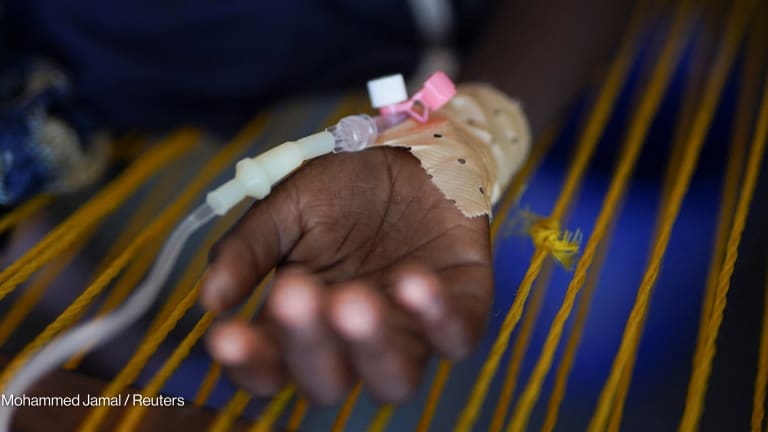
Displacement camps are a familiar sight following large-scale disasters. In them, you’ll find blocks of communal latrines, which oftentimes are not lit at night as most camps have no electricity. The problem: Women and children cannot or don’t want to use them over concerns about their safety and privacy.
A new grant challenge is seeking to expand low-cost and preferably sustainable latrine lighting in emergency camps, under a recently launched 3.3 million pounds ($5.4 million) fund supported by the U.K. Department for International Development. And now a second one — which seeks “the most economical process of managing solid wastes without worsening the already poor living conditions” in emergency camps or causing harm to individuals or the environment — has been issued.
There’s no specific eligibility requirement to enter the challenges — for a reason.
“You don’t need to have a long background and a lot of technical expertise to come up with solutions, so we’re able to link with people who would normally be outside the sector and get them to submit their ideas,” Kim Scriven, program manager for the Humanitarian Innovation Fund, told Devex.
For more complex problems, such as promoting handwashing among affected populations, HIF will work closely with experts both in and outside the humanitarian world. The plan is to broker collaborations among these experts so they can come up with ideas to address the problem, and then provide “substantive funding” to develop prototypes and test those in the field.
So what might be next challenge under the fund? The WASH gap analysis carried out last year may provide some clues.
The exercise involved more than 900 practitioners from 45 aid groups in 40 countries. It resulted in a list and ranking of the major gaps that needed addressing in the water, sanitation and hygiene sector.
Andy Bastable, head of water and sanitation at Oxfam and chairman of HIF’s WASH Technical Working Group, spearheaded the gap analysis. He told Devex that he personally advocated for the process, arguing “about how it is essential to have a gap analysis before calling for ‘any’ innovations, otherwise you get lots of ideas on the same subject which are not necessarily filling the need,” like numerous proposals around water filters and none on excreta disposal.
The gap analysis, Bastable suggested, makes the WASH fund unique.
“What we’ve seen in other challenges by various foundations is the head person there has a passion for something … and they get suddenly interested in those particular innovations,” he said. “So I think the whole strength of this is this is from the field practitioners [saying] these are the gaps.”
Bastable and the rest of the WASH Technical Working Group will select the best solutions submitted through the challenges. Those with the winning ideas will come away with cash prizes — for instance, 20,000 pounds for the first challenge and 15,000 pounds for the second.
According to Scriven, HIF will either work with the grantees or with organizations to test the ideas in a field setting and then share the results with the public.
When asked for advice to challenge applicants, Scriven said they have to know and understand the details of the challenge and be creative.
“Try to come up with radical new ideas that they think can solve that problem,” he said. “But those creative ideas will only be relevant if they’re really looking in detail about what the problem is.”
Read our previous #innov8aid.








